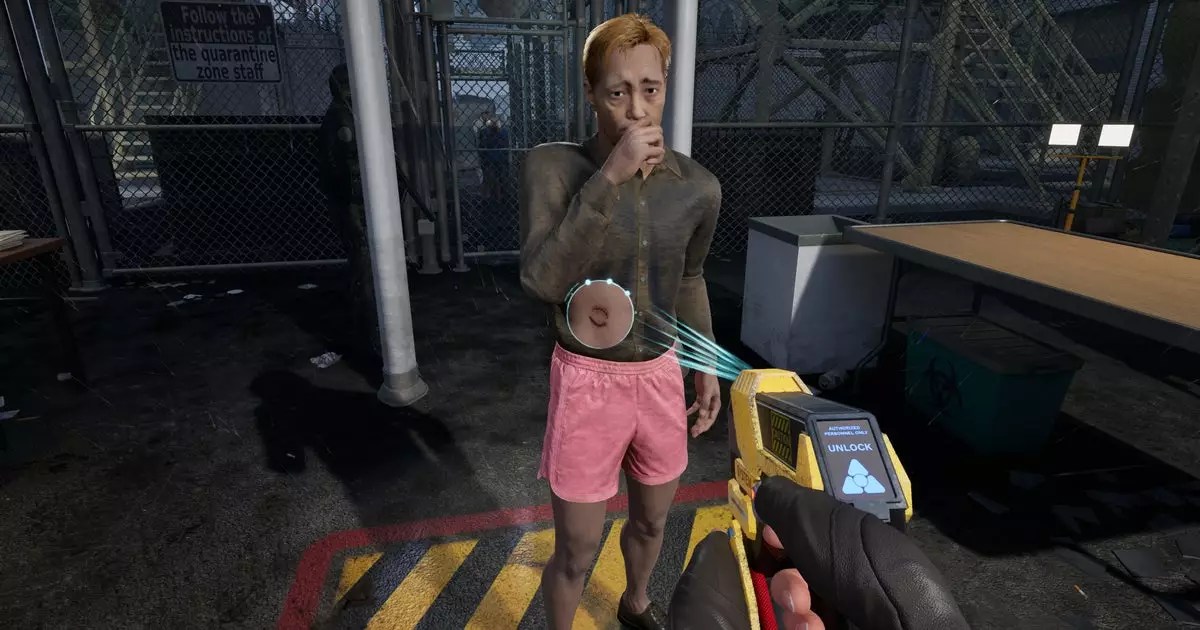At its core, *Quarantine Zone: The Last Check* ventures beyond traditional zombie games by immersing players in a morally complex environment fraught with tension and ambiguous morality. Unlike typical apocalypse scenarios that focus solely on combat and horror, this game positions you as an authority figure tasked with inspecting and filtering refugees at a government checkpoint. The player’s decisions—who to admit, whom to quarantine, and who to dismiss—mirror core human dilemmas about judgment, trust, and survival. It’s a fascinating exploration of how choices shape not only the outcome of the game but also our perception of morality.
This heightened emphasis on moral ambiguity elevates the game from mere entertainment into a mirror reflecting the often uncomfortable realities of border politics and crisis management. Instead of clear-cut decisions—”Save everyone” or “Destroy everyone”—players grapple with nuanced judgments. Is that groaning woman truly infected, or is she simply indigent? Should a person showing only minor symptoms be granted passage or quarantined? These decisions underscore the fragility of human judgment in high-pressure situations, emphasizing that survival hinges not just on technical tools but also on intuition and moral resilience.
This approach calls players to reflect on their own biases and assumptions, thus transforming what might seem like a routine game mechanic into a thought-provoking exercise about the human condition. It reminds us that in times of crisis, the line between heroes and villains often blurs, and humanity’s moral fabric is tested under extreme pressure.
Harnessing Uncertainty and Chaos:
One of the most compelling aspects of *Quarantine Zone* is its emphasis on managing chaos. The game simulates an environment where threats are unpredictable and morality is constantly challenged by the dwindling supply of resources. As you juggle limited testing kits, patrol duties, and defense preparations, there’s an underlying commentary on how societies allocate resources in times of scarcity and peril.
The dynamic threat system adds layers of tension: unaffected civilians intermingle with potential zombies, stirring up suspicion and uncertainty. This reflects the real-world difficulty of distinguishing between the innocent and the infected in crises—an analogy for societal fears, xenophobia, and the often irrational responses of authorities. Each decision to admit, quarantine, or eliminate individuals is fraught with the emotional weight of possible error. A false positive may condemn an innocent person, while a false negative could invite catastrophe.
Furthermore, the game’s resource management mechanics echo the dire limitations faced by governments during emergencies—not enough testing supplies, insufficient manpower, and the necessity of making split-second calls. This strategic pressure, combined with a rising sense of dread, pushes players to confront not just external threats but also internal struggles with fear, prejudice, and moral compromise.
In essence, *Quarantine Zone* reflects a larger truth: in unpredictable circumstances, decisions shape destinies, and moral clarity often gives way to pragmatic compromise. These mechanics serve as a stark reminder that survival isn’t merely about defeating monsters but also about wrestling with our own humanity.
Humor as a Subversion of Horror and Humanity
While much of the game leans into dark realism and survival anxiety, its author’s playful commentary injects a much-needed dose of humor that undermines the bleakness. The suggestion of jokingly misidentifying individuals as Buster Keaton or Barney the Dinosaur, based on subtle cues—or teasing the absurdity of trying to distinguish between a real dinosaur and a costumed performer—humanizes the experience.
This lighthearted twist draws attention to the game’s underlying critique of the often futile efforts to impose order in chaotic environments. In the midst of death, disease, and moral uncertainty, humor becomes a vital tool to maintain mental resilience. It also subtly comments on how superficial appearances—like a groaning citizen or a suspicious bump—can be misleading. Sometimes, the game seems to suggest, you need to look past the surface to discern true intent or truth.
Furthermore, this playful lens questions the seriousness with which we often approach crises. It hints that amidst the terrifying realities of a zombie apocalypse, absurdity and laughter remain powerful coping mechanisms. This blending of horror, morality, and humor enriches the experience, making it not only a test of strategy but also of spirit. It underscores a central insight: that maintaining your humanity—whether through humor, compassion, or moral courage—is even more crucial than simply fighting off monsters.
—
In *Quarantine Zone*, the mechanics, narrative depth, and dark humor combine to create a provocative reflection of real-world dilemmas masked within a dystopian setting. It challenges players to consider how they navigate moral gray areas and the importance of preserving dignity amid chaos. More than just a game about zombies, it is a moral playground where humanity’s fragile threads are tested, revealing that true survival may depend less on fighting monsters and more on understanding what it means to remain human in a world gone mad.


Leave a Reply